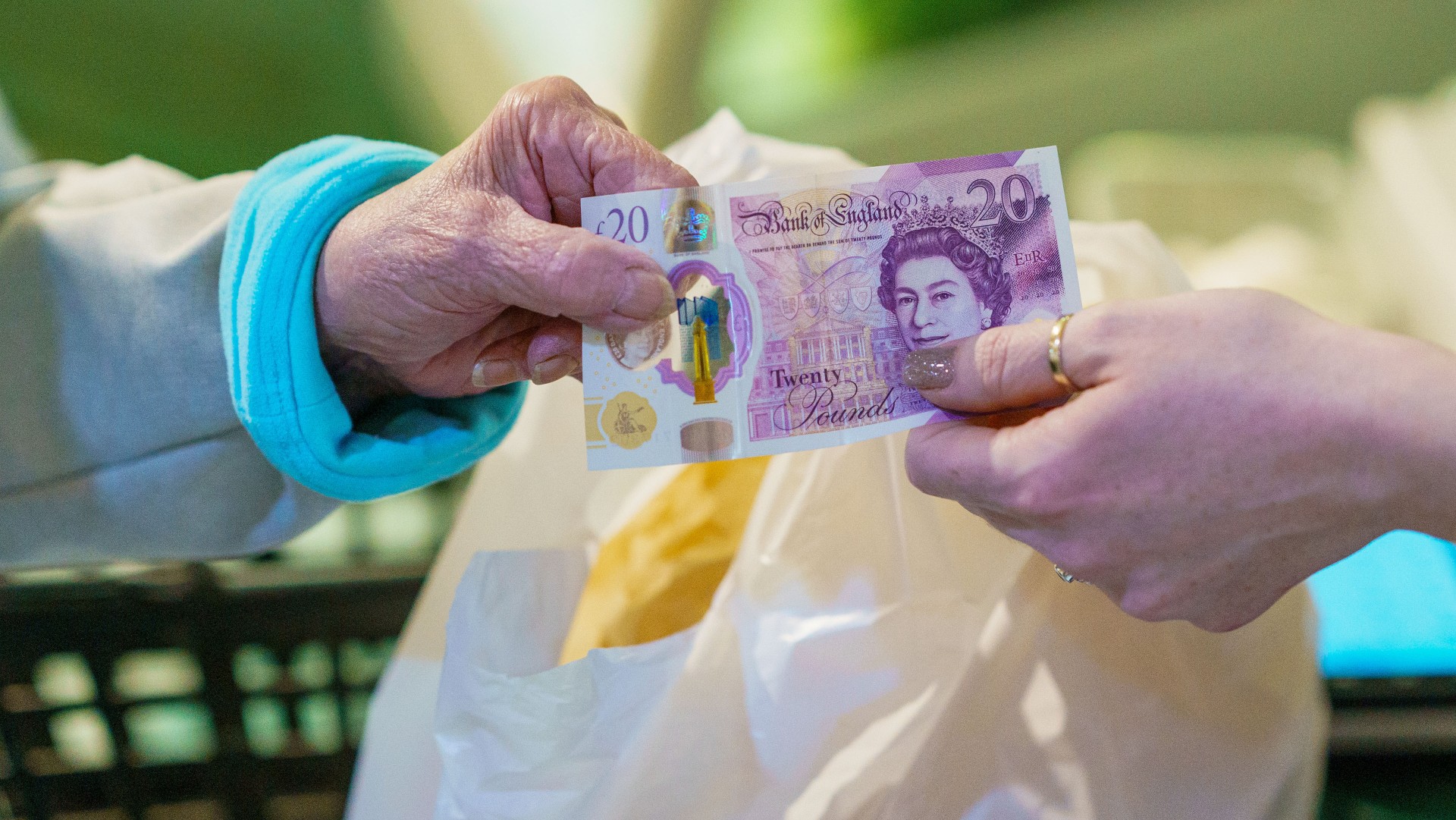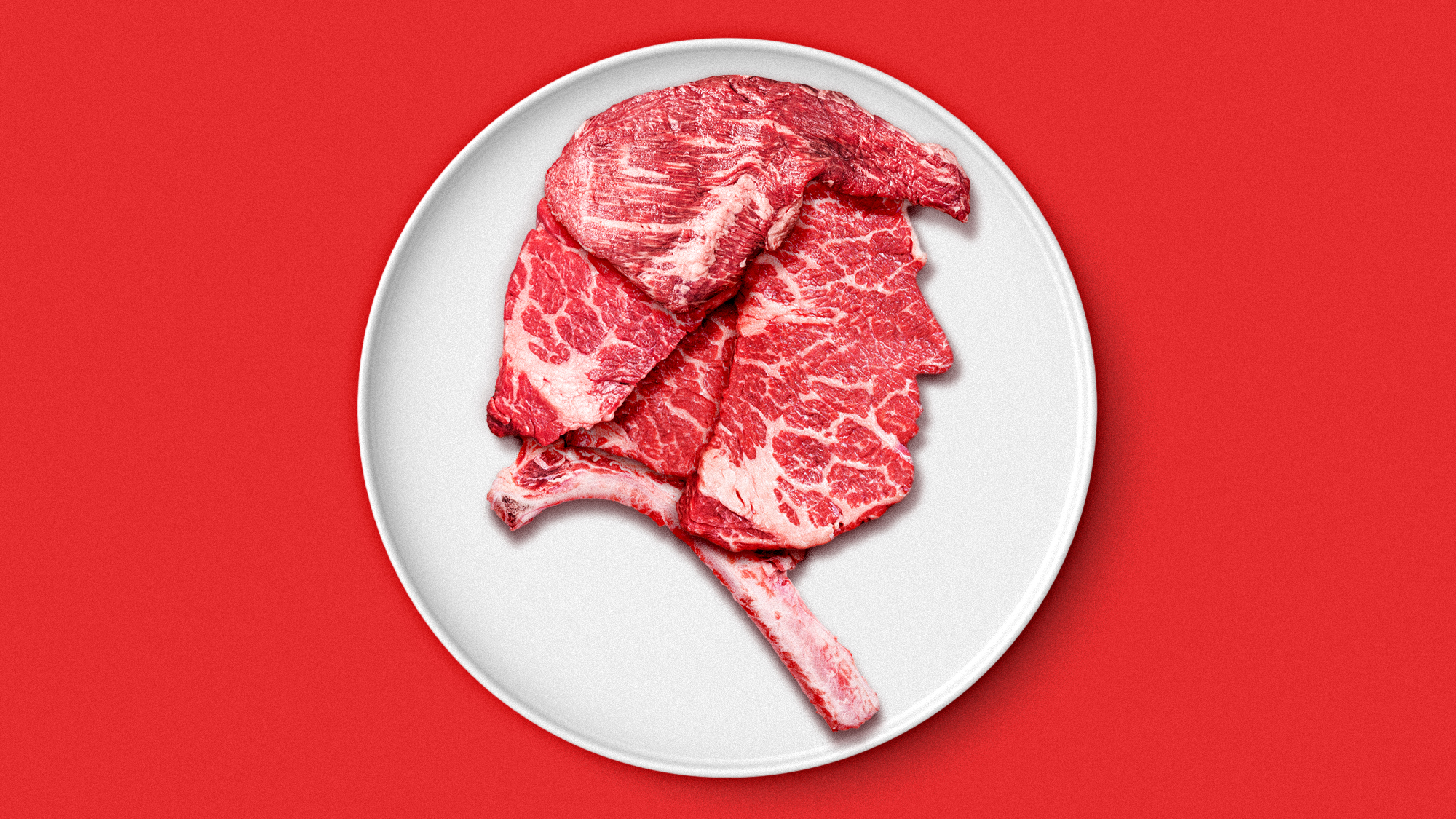Greedflation: the claim that businesses are making inflation worse
Supermarkets accused of profiteering as food prices outpace inflation, but falling profits tell a different story

A free daily email with the biggest news stories of the day – and the best features from TheWeek.com
You are now subscribed
Your newsletter sign-up was successful
MPs, academics and trade unionists have accused supermarkets of deliberately “profiteering” from inflation, alleging that they are increasing food prices beyond the pace of inflation and their own rising costs.
Although general inflation fell to 8.7% last week, “food-price inflation remains stubbornly high at 19%”, said BBC News.
Downing Street is also “drawing up plans for retailers to introduce price caps on basic food items such as bread and milk to help tackle the rising cost of living”, The Sunday Telegraph reported last weekend, in a move akin to deals that other European governments such as France and Germany have agreed with retailers.
The Week
Escape your echo chamber. Get the facts behind the news, plus analysis from multiple perspectives.

Sign up for The Week's Free Newsletters
From our morning news briefing to a weekly Good News Newsletter, get the best of The Week delivered directly to your inbox.
From our morning news briefing to a weekly Good News Newsletter, get the best of The Week delivered directly to your inbox.
Tim Farron, Liberal Democrat MP and environment spokesperson, called for an inquiry into “shameless profiteering” by the supermarkets at a time when people were struggling to feed their families.
Last week, the Competition and Markets Authority watchdog said it would scrutinise supermarket fuel pricing and the groceries market more closely, to assess whether “failure in competition” was causing customers to overpay.
What is greedflation?
The “new buzzword in economics”, according to Sky News, greedflation is “an ugly word for an ugly phenomenon”: the idea that businesses are taking advantage of high inflation and the cost-of-living crisis by increasing prices beyond their own rising costs, in order to increase their profits.
The accusation is that big businesses have “exploited the pandemic and the Ukraine war to drive their profits higher, protecting dividend payments to shareholders”, said The Guardian, engaging in “systematic and excessive price increases that can fairly be considered price-gouging or, more emotively, greedflation”.
A free daily email with the biggest news stories of the day – and the best features from TheWeek.com
“Once dismissed as a fringe theory,” said Axios, the idea that “corporate thirst for profits drives up inflation” is now being taken more seriously by economists and policymakers.
The claim that profits drove the surge in US inflation was “waved away” by mainstream types when it emerged among economists, but “that changed earlier this year”.
In March, Paul Donovan, the chief economist at UBS Global Wealth Management, described “profit margin-led inflation”. In late 2022 and early this year, companies raised prices beyond what was needed, he said, particularly in retail and consumer goods.
Is greedflation actually happening?
The average profit margins of the top 350 companies listed on the London Stock Exchange increased from 5.7% in the first half of 2019, to 10.7% in the first half of 2022, according to analysis by Unite, the UK’s largest private-sector trade union.
Last year, US company profit margins hit their highest level since just after the Second World War, said a study by the University of Massachusetts Amherst.
In the same year, a study by The Guardian revealed profiteering by firms that had appeared to be putting up prices only because of increasing raw materials costs.
Grocery price inflation in the UK has rapidly outpaced the rate of wage growth: 7% in the private sector in January to March 2023, and 5.6% in the public sector, according to the Office for National Statistics.
The Consumer Price Index score for food and non-alcoholic drinks in the UK reached 128.1 in the first quarter of 2023, “indicating that food and drink prices have risen by 28.1% when compared with 2015”, according to Statista data.
And those figures “disguise further variation”, said The New Statesman. The cost of basic food items like milk is increasing far more rapidly than other items.
But food should logically be cheaper – the UN’s food agency world price index (FFPI) fell by nearly 20% in the year to April.
Another measure of prices, the Eurozone gross domestic product deflator, shows that “a sizeable chunk” of increases in prices is down to rising profits, according to Sky News.
However, a third of the UK food-price inflation since 2019 is actually down to Brexit, according to recent research by the London School of Economics. British households have paid £7 billion since Brexit to cover the cost of trade barriers on food imports from the EU, the report said.
“Between December 2019 and March 2023 food prices rose by almost 25 percentage points. This analysis suggests that in the absence of Brexit this figure would be 8 percentage points (30%) lower,” the report said.
What do the supermarkets and economists say?
Supermarket bosses have claimed that their sales growth is not actually keeping pace with headline inflation, as their profit margins are so narrow.
When asked whether Sainsbury’s had been using inflation as a pretext for increasing profits, CEO Simon Roberts told the BBC: “Absolutely not.”
“We made less profit year-on-year and that’s because we made really conscious decisions to keep our prices as low as we could,” Roberts said.
There “wasn’t much sign of profiteering” in recent supermarket profit results, said the Financial Times.
The profit margin of the grocery sector has fallen by an average of 60 basis points in Europe over the past five years, according to BNPP Exane equity analyst Andrew Gwynn, quoted in the paper.
“Making the supermarkets the bogeymen of food inflation” and concerns about greedflation, is “unhelpful”, wrote FT business columnist Helen Thomas.
In the UK, there has been “no increase in the profit share of national income”, said Ben Broadbent, the deputy governor of the Bank of England (BoE), at the Monetary Policy Report Press Conference in May. Corporate profit figures in the UK and the eurozone do not “tell the same story”, he said.
Soaring inflation, even in food prices, is not down to higher profit margins, according to a former BoE interest rate settler and senior economic advisor at Oxford Economics consultancy, Michael Saunders.
Greedflation does not “reflect the reality for the UK”, said Saunders, who was on the BoE’s Monetary Policy Committee from 2016 to 2022, at the same conference.
The “overwhelming majority” of the inflation rise “reflects costs pressures from energy and other commodities”, he said.
Harriet Marsden is a senior staff writer and podcast panellist for The Week, covering world news and writing the weekly Global Digest newsletter. Before joining the site in 2023, she was a freelance journalist for seven years, working for The Guardian, The Times and The Independent among others, and regularly appearing on radio shows. In 2021, she was awarded the “journalist-at-large” fellowship by the Local Trust charity, and spent a year travelling independently to some of England’s most deprived areas to write about community activism. She has a master’s in international journalism from City University, and has also worked in Bolivia, Colombia and Spain.
-
 What is the endgame in the DHS shutdown?
What is the endgame in the DHS shutdown?Today’s Big Question Democrats want to rein in ICE’s immigration crackdown
-
 ‘Poor time management isn’t just an inconvenience’
‘Poor time management isn’t just an inconvenience’Instant Opinion Opinion, comment and editorials of the day
-
 Bad Bunny’s Super Bowl: A win for unity
Bad Bunny’s Super Bowl: A win for unityFeature The global superstar's halftime show was a celebration for everyone to enjoy
-
 Will Trump’s 10% credit card rate limit actually help consumers?
Will Trump’s 10% credit card rate limit actually help consumers?Today's Big Question Banks say they would pull back on credit
-
 Why is pizza in decline?
Why is pizza in decline?In the Spotlight The humble pie is getting humbler
-
 What will the US economy look like in 2026?
What will the US economy look like in 2026?Today’s Big Question Wall Street is bullish, but uncertain
-
 Is $140,000 the real poverty line?
Is $140,000 the real poverty line?Feature Financial hardship is wearing Americans down, and the break-even point for many families keeps rising
-
 Fast food is no longer affordable for low-income Americans
Fast food is no longer affordable for low-income AmericansThe explainer Cheap meals are getting farther out of reach
-
 Why has America’s economy gone K-shaped?
Why has America’s economy gone K-shaped?Today's Big Question The rich are doing well. Everybody else is scrimping.
-
 From candy to costumes, inflation is spooking consumers on Halloween this year
From candy to costumes, inflation is spooking consumers on Halloween this yearIn the Spotlight Both candy and costumes have jumped significantly in price
-
 Why are beef prices rising? And how is politics involved?
Why are beef prices rising? And how is politics involved?Today's Big Question Drought, tariffs and consumer demand all play a role